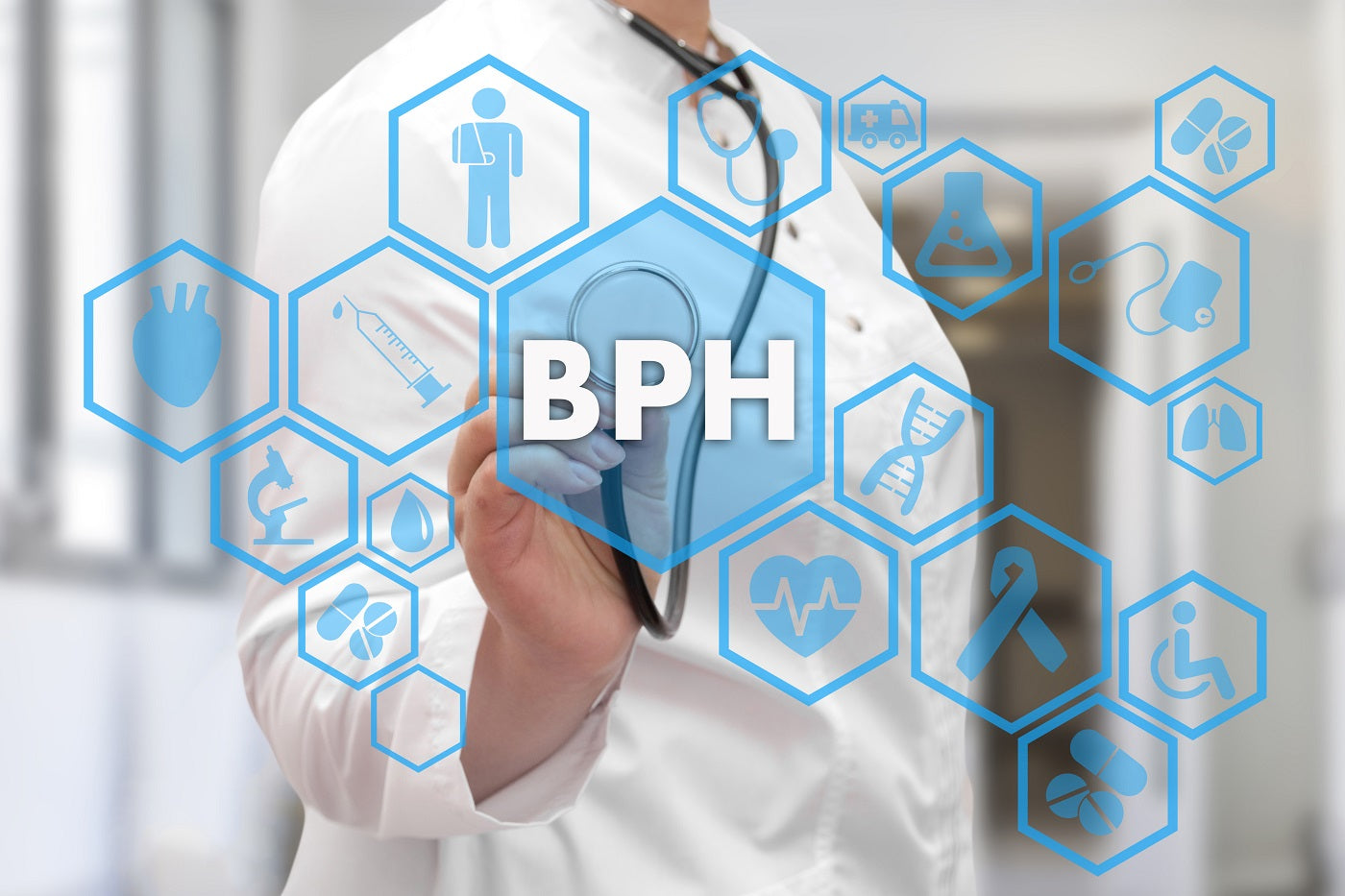up to 40% OFF Energy, Heart & Circulation Essentials | Free NZ Delivery on Orders 99+
up to 40% OFF Energy, Heart & Circulation Essentials | Free NZ Delivery on Orders 99+
Supplements
Shop by Health Concern
Shop by Category
Shop by Health Concern
Shop by Category
Skincare
Shop by Skin Type / Concern
Shop by Category
Shop by Skin Type / Concern
Shop by Category
Enlarged Prostate: Symptoms and Treatment
June 06, 2019 3 min read

Benign Prostatic Hypertrophy (BPH) is a very common health issue that impacts many men from the age of 40. Most people refer to this health condition as an enlarged prostate gland. The prostate gland is an important part of the male reproductive system. Its function is to synthesize the liquid which carries sperm outside the body on ejaculation.
The prostate gland starts off very small, but it increases in size over time. Once a man has passed the age of forty, his prostate gland may well have increased in size. If that same man reaches the age of eighty, his prostate gland will be even bigger. Benign prostatic hypertrophy (BHP) is a health condition that impacts all men sooner or later; it’s just a matter of time.
The Causes
Benign Prostatic yHpertrophy is not linked to prostate cancer in any way. However, medical experts are not sure what causes the health condition. An enlarged prostate gland is age related, and it only impacts men who still have at least one functioning testicle. Benign prostatic hypertrophy might also be linked to falling testosterone levels.
The Symptoms
The prostate gland surrounds the urethra, which is the tube that carries urine outside of the body. The prostate gland is located next to the bladder. Thus the symptoms of benign prostatic hypertrophy are linked to urination. If your prostate gland is enlarged, you may find that you struggle to urinate. You might also notice that you cannot completely empty your bladder. Men with benign prostatic hypertrophy often have to get up more than twice during the night to urinate. Straining on urination is a common symptom of an enlarged prostate gland, other symptoms include a weak urine stream, incontinence, difficulty getting the flow started, and intense and unexpected urges to urinate.
The Treatment
The treatment of an enlarged prostate gland varies from one patient to the next. Much depends on the size and shape of the prostate gland, and the severity of the condition. Certain medications are sometimes used to help treat the condition. For instance, if your prostate gland is enlarged, your doctor might prescribe alpha blockers. Surgery is an option for more severe cases of benign prostatic hypertrophy. A simple prostatectomy is just one of the surgical procedures available to treat the condition. Less invasive treatment options are also accessible, for example, radiofrequency energy can be used to heat and destroy excess prostate tissue.
Home Care
If your doctor has diagnosed you with benign prostatic hypertrophy, there is a lot you can do at home to ease the symptoms of the condition. The first thing you should do if you have an enlarged prostate is cut back on caffeine and alcohol. You may also find it helps to sip small amounts of fluid on a regular basis rather than drinking a large volume of liquid at once. If your prostate gland is enlarged, it is a good idea to avoid using the cold and sinus medications you can buy from drug stores, as they can exacerbate the condition. You should make sure you keep your body warm, exercise regularly, and take appropriate measures to reduce your stress levels. You might also find that regular Kegel exercises give you better control over your urinary flow.
Many herbal supplements are used to treat benign prostatic hypertrophy. Saw palmetto, nettle root, sarsaparilla root, wild yam root, echinacea root, evening primrose oil and pumpkin seeds can all help to reduce the symptoms associated with an enlarged prostate gland. Abeeco's all natural Prostate Care Formula contains saw palmetto, nettle and pumpkin seed along with zinc, pygeum, selenium and vitamins E and D to support healthy prostate function and urinary flow.

Jude Salisbury
MEET THE AUTHOR
As the driving force behind abeeco, Jude combines her deep passion for New Zealand's natural ingredients with a commitment to quality and authenticity. With decades of experience in the health and wellness industry, she leads with a belief that nature provides everything we need to look and feel our best. Jude loves sharing insights into the power of bee products and other homegrown treasures that support everyday wellbeing.
Disclaimer: This article provides general information only and is not a substitute for medical advice. Abeeco products are for cosmetic and dietary purposes. Our supplements & tonics aren't intended to diagnose, treat, cure, or prevent any disease. Consult a healthcare professional for medical advice or before starting new supplements. Individual results may vary. Always follow product directions. Our products are not intended to treat or cure any medical condition.
